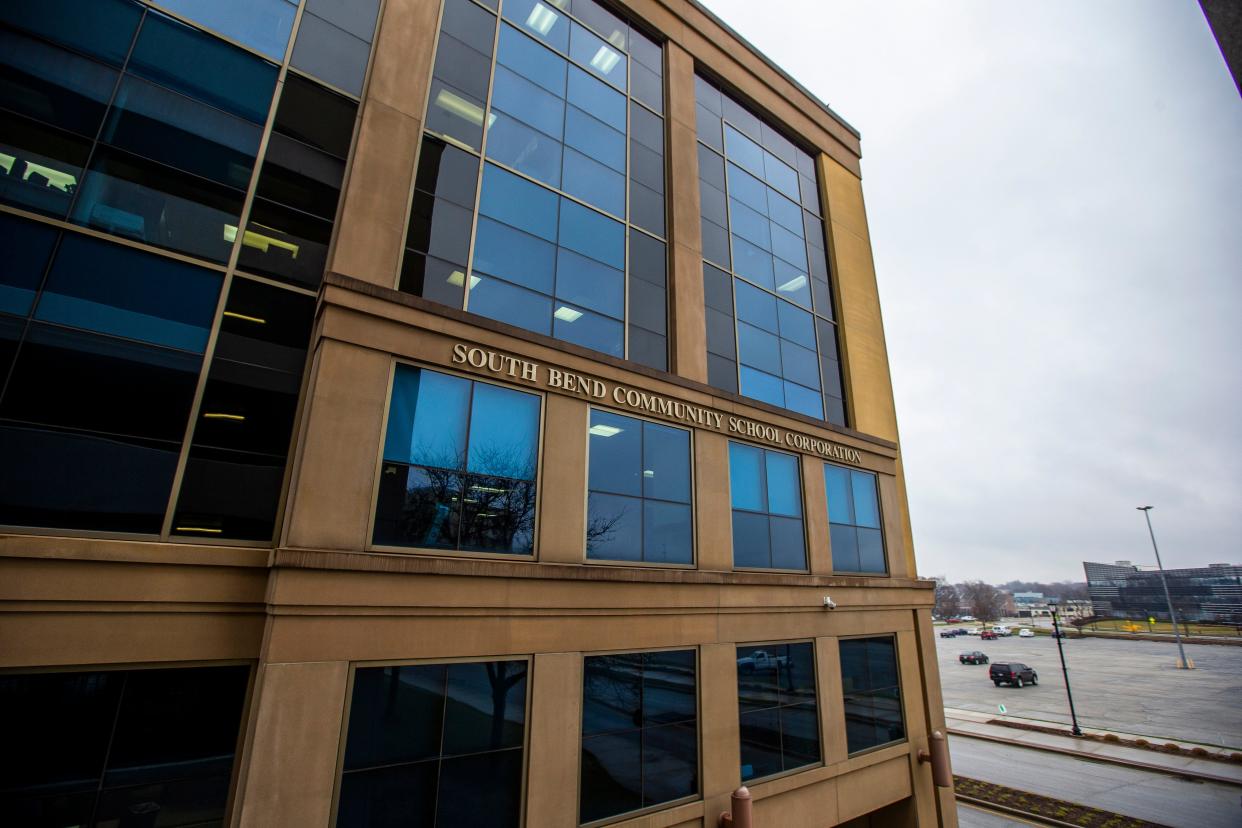Viewpoint: Contract raises a larger question: Should we have cops in South Bend schools?

Late one the evening, while friends were out getting drinks or settling into their next Netflix binge, I was sitting at my poorly-lit desk, trawling over a contract between the South Bend Community School Corp. and the South Bend Police Department. It was the document that allowed for school resource officers, that is, cops, in schools.
As an aspiring professor who is fascinated by teaching practices, I was curious, so I read. And then I read it again. And then I got some friends and we read it together. I was mortified; we were mortified. The contract had so many holes it looked like LaSalle Avenue after the winter. And every one of those holes could become a pit into which unsuspecting students fall.
Let me give two examples:
• Removal of students from campus:
“SROs shall not transport students in Police Department vehicles except when students are victims of a crime, under arrest, or some other child welfare, safety or emergency circumstances exist or as may be permitted by SBCSC Policy” (Article IV, Section G).
This seems pretty straightforward, but here’s the problem: The parents are removed completely from the equation. Throughout the entire document there are no requirements for the parents to be notified of their child being removed from campus. Later in Article V, Section A, the only explicitly stated rule is that the principal must be notified, “within forty-eight hours of the child being taken into custody.” If you are a parent of a student in the SBCSC, your student can be removed from campus without your consent or knowledge.
•Policing of students:
The contract says one of the purposes of SROs is to:
“Report and investigate all crimes originating on campus…[a]ssist and initiate reports: be assigned, investigate and follow up all crimes that occur on the campus of their assigned school(s) or that may involve juveniles of their assigned school.” (Exhibit B, Section 6).
SROs have the freedom to “follow up” (notice the sanitized language) with students about crimes on and off campus. Does this mean that students can be pulled out of algebra to be interrogated for a crime they may not have committed? Nothing in the contract prevents it. Does it mean that a student can be asked to give information about crimes that may or may not have happened in their neighborhood or home? Again, the contract says nothing. The classroom shifts then, subtly: Now the students are not merely learning, they are also being policed, and if history repeats itself, all students will not be policed equally, especially along racial lines.
Now, some people will say that cops in schools protect students from events like active shooters. And I agree, that, given the sad reality of mass shootings, it is necessary to have cops nearby. But does that mean we need to have cops in schools, in classrooms? And we need to seriously question if the only motive for having SROs is the safety of the students; in Section 5 of the “program objectives” category it says: “(cops are present for) Effective problem solving and liaising with neighborhoods surrounding a school which are affected negatively by the conduct of students, or vice versa.” This shows that the cops aren’t there solely to protect students, they are there to protect the surrounding areas from the students. (Further, a recently published, 40-year study has shown that having cops in schools actually increases the mortality rate during school shootings.)
The contract brings forth a far larger question: Should we have cops in schools at all? To me, the answer is a simple and emphatic no. I think policing students is antithetical to the educational process, and a comparable degree of safety can be provided with a cop nearby in case of extreme emergencies.
In my eyes, two actions must be taken: This summer, the review committee (see Article II) should reconsider the usefulness of the contract and SROs, choosing to use the $375,000 in SRO funding for well-trained, unarmed school aides grounded in restorative justice practices. Second, if you share a concern about this contract, email your local school board members and ask that they invest in unarmed peacemakers instead of police.
Spencer French is a graduate student at the University of Notre Dame. He is a member of the Notre Dame Black Lives Matter affiliate group.
This article originally appeared on South Bend Tribune: Should we have cops in South Bend schools?

